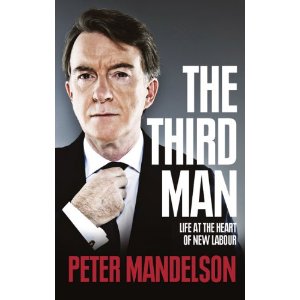My friend Nicci has a lovely blog post with this title. It begins:
Every summer we travel to Sweden. Luckily, we go by ferry and car – luckily, because then we can take as many books as we want. And we take lots of them, dozens and dozens: books we know we’re going to read and books we think we're going to read and books we might possibly read or dip into and a few reference books, who knows why?, and some poetry books so we can learn poetry by heart, and then there are the books we want other people to read because we love them so much and the just-in-case books which we are pretty certain we won't have time to read, but what if a day suddenly has more hours in it, or if we break a leg and spend all our time lying in bed…. In fact, I blame it on Sean [Sean French, her husband and co-author of the Nicci French books]: usually only six or so of the books are my choice, and the rest are his. He is tremendously ambitious: he always takes several classics that are hundreds of densely-typed pages long. I remember that the first holiday we ever went on together was a walking week in the Provence, and he carried the new, heavy (unopened) translation of War and Peace in his rucksack, from hotel to hotel.
As it happens, the weight of books was much on my mind when we were heading for Provence this year. As usual, we agonised about whether this would be the year that we drove down to the South of France rather than enduring the indignities of RyanAir, but in the end decided that we had to fly because of various external deadlines and exigencies. Which meant that we were immediately faced with the fierce weight restrictions — 10 kg — imposed on cabin baggage by the world’s least-favourite but most-used airline.
Believe me, 10 kg doesn’t leave much leeway if you have to take a serious camera and a laptop, so I spent the week before we left avoiding bookshops. But one recently-published volume really intrigued me — Peter Mandelson’s memoirs. The problem was: it was big and heavy.
In the end, I hit on a solution: I have an iPod Touch for which there’s a Kindle App, so I bought the eBook version of the book from the Amazon Kindle store. This was a first for me, in that although I use eBooks a lot (I always carry an electronic copy of Ulysses with me, for example), they’re DRM-free, and in general I’m pretty hostile to the intellectual-property regimes implicit in the eBook business. But I thought that, in this particular case, the experiment was worth trying.
Mandelson’s memoirs are a revelation. Firstly, they’re surprisingly readable. Most politicians can’t write (which was one of the reasons Obama’s memoir came as such a lovely surprise). But Mandelson’s memoirs have an engaging, candid style in which he comes over as an interesting and rather engaging man: a political obsessive, of course, but an intriguing character — the kind who would make an excellent dinner-guest. The book also suggests a more sensitive and insecure person than his public carapace might indicate — which reminded me of a general principle that all journalists should have engraved on their hearts: whenever you encounter a media stereotype, it’s likely to be completely misleading.
Secondly, although — like all political memoirs — they are self-serving to a degree, my conclusion is the same as that reached by my former Observer colleague, Robert Harris, namely that Mandelson was very shabbily treated by Blair and Campbell. But the most striking thing of all is the picture that emerges of Gordon Brown as an emotionally crippled, obsessive, almost psychotic personality. People have always said that Brown should never have been Prime Minister. I’ve come away from Mandelson’s book thinking that he should never have been Chancellor either. All of which makes the final act of the story — in which the Brown who has for a decade been attacking and undermining Mandelson begs him to come back to help out — truly extraordinary.
The Kindle App is very neat btw. Once you buy a book, it becomes available on any Apple iDevice that you happen to own. And if you’re on a WiFi network, it checks to see if you’ve been reading the book on another device and, if you have, whether you want to jump to where you left off on the other machine.
When talking to Bill Thompson about this last Saturday, he made an interesting point, namely that the reading experience provided by the Kindle App is better than that provided by the actual Kindle device marketed by Amazon. The reason? With the device, you turn the page by pressing a button, whereas on the App you just stroke the page — so, as Bill put it, “you engage with the text and not with the device”. Not possessing a Kindle, I can’t attest to this, but it’s an intriguing thought.

